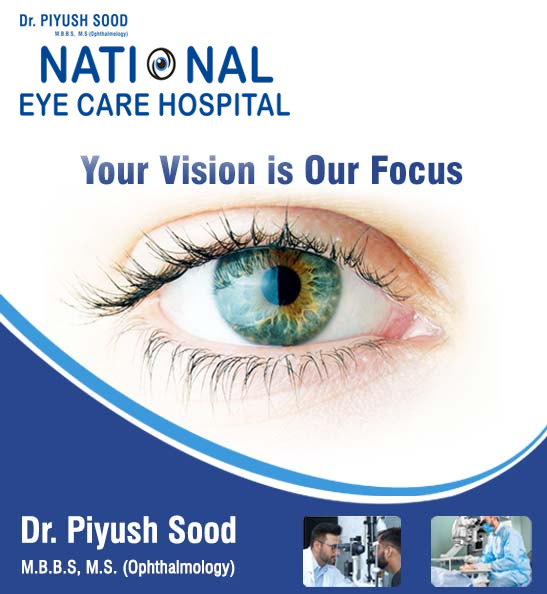Andalusia Pediatrics: Exceptional Look after Children's Health Demands
Andalusia Pediatrics: Exceptional Look after Children's Health Demands
Blog Article
Is Refractive Surgery Right for You? Aspects to Consider for Better Eyecare
In the realm of eye care, the decision to undertake refractive surgery is a significant one that demands thoughtful consideration. From the intricacies of one's ocular health to the ins and outs of day-to-day behaviors and individual assumptions, each aspect holds importance in the broader landscape of refractive surgery candidateship.
Eye Wellness Analysis
When taking into consideration refractive surgery, an extensive eye health analysis is critical to examine the suitability of the procedure for each and every person. eye center andalusia. This examination includes a series of tests and exams conducted by an eye treatment expert to determine the total health of the eyes, the presence of any kind of underlying problems, and the stability of the refractive mistake
During the analysis, various factors are thought about, such as the client's clinical history, existing eye prescription, corneal thickness, pupil size, and tear film top quality. These evaluations help to determine any contraindications to refractive surgical treatment, such as corneal problems, cataracts, or without treatment eye infections. Additionally, the examination helps to handle patient expectations pertaining to the prospective end results of the surgical treatment based upon their unique eye attributes.
Ultimately, the eye health and wellness analysis is essential in guaranteeing the safety and efficiency of refractive surgical procedure, as it offers useful understandings right into the individual's eye health condition and helps establish the most appropriate treatment choices for accomplishing ideal aesthetic outcomes. (neurologist andalusia)
Lifestyle Assessment
A comprehensive way of life assessment is essential in identifying the suitability of refractive surgery for an individual's visual correction demands. Way of living variables such as line of work, hobbies, and daily tasks play a crucial duty in the decision-making procedure relating to refractive surgical treatment. As an example, people with professions that involve a high degree of physical activity or exposure to environmental elements might have various visual requirements contrasted to those with inactive desk work. Recognizing exactly how a person's way of living may influence their vision post-surgery is crucial for handling expectations and making certain ideal end results.
Furthermore, way of life behaviors such as sports involvement, exterior activities, or perhaps skin care routines can influence the recovery procedure and general success of refractive surgical procedure. For instance, people that involve in contact sports might need to take extra precautions to secure their eyes throughout the recovery period. In addition, people with extensive sun exposure may call for additional post-operative like protect against issues. By performing a comprehensive lifestyle assessment, eye care experts can customize their suggestions and therapy plans to satisfy the special requirements of each patient, eventually resulting in enhanced visual results and fulfillment.
Assumption Alignment

Setting practical expectations entails detailed pre-operative conversations between the eye doctor and the patient. The surgeon should transparently connect the prospective risks, advantages, and restrictions of the treatment (cardiologist andalusia). People need to understand that while lots of individuals attain 20/20 vision or much better following refractive surgical procedure, some may still call for glasses for sure activities like analysis or driving at night. Taking care of these expectations aids stop disappointment and discontentment post-surgery, leading to an extra positive total experience for the client.
Danger Evaluation

Variables that may raise the risk of issues consist of age, certain clinical problems like autoimmune conditions, unstable vision prescription, slim corneas, and impractical patient expectations. In addition, choosing a seasoned and proficient doctor, following pre and post-operative care directions faithfully, and disclosing any type of appropriate case history can help reduce dangers.
To decrease the likelihood of problems, ophthalmologists perform thorough pre-operative assessments to determine any kind additional info of contraindications to surgical treatment. They additionally discuss the potential risks and benefits with individuals throughout the appointment procedure. By taking part in open interaction and shared decision-making, both the eye doctor and the patient can interact to identify if refractive surgery is the best choice based on individual threat accounts and wanted end results.
Appointment Relevance
Taking into consideration the essential duty of educated decision-making in examining dangers and potential problems in refractive surgery, the consultation procedure holds considerable significance in directing patients in the direction of optimum end results. During the consultation, the eye doctor reviews the person's eye health, refractive errors, and total viability for surgical procedure. This preliminary assessment is essential in determining one of the most appropriate procedure for each and every individual, taking into consideration variables such as corneal thickness, student size, and existing eye conditions.
Additionally, the assessment acts as a chance for patients to review their expectations, concerns, and any kind of questions they might have concerning the surgical procedure. Clear interaction in between the specialist and the client is important to make sure realistic expectations and a comprehensive understanding of the possible risks and benefits entailed.
Furthermore, the appointment allows the specialist to explain the various medical options offered, their particular outcomes, and the post-operative care needed. This comprehensive discussion equips people to make well-informed choices concerning their eye treatment, resulting in much better satisfaction and outcomes post-surgery.
Final Thought
To conclude, people thinking about refractive surgical procedure should undergo a detailed eye wellness analysis, assess their lifestyle practices, straighten their assumptions with possible end results, assess the associated risks, and prioritize assessments with eye care experts. These aspects play a crucial role in determining the suitability of refractive surgical procedure for each person, ensuring optimal end results and satisfaction with the treatment.
People considering refractive surgery usually have high assumptions pertaining to the results, expecting ideal link vision without the need for glasses or contact lenses. While refractive surgery can considerably boost vision and minimize dependency on visual help, it is vital for individuals to understand that outcomes might differ based on individual variables such as the level of refractive error, corneal density, and general eye health.
By involving in open interaction and shared decision-making, both the client and the ophthalmologist can work with each other to figure out if refractive surgical treatment is the right selection based on individual threat profiles and wanted their website results.
Considering the critical function of educated decision-making in examining risks and possible problems in refractive surgical treatment, the assessment procedure holds significant relevance in directing people towards optimum outcomes. Throughout the examination, the ophthalmologist evaluates the client's eye wellness, refractive errors, and general viability for surgical treatment.
Report this page